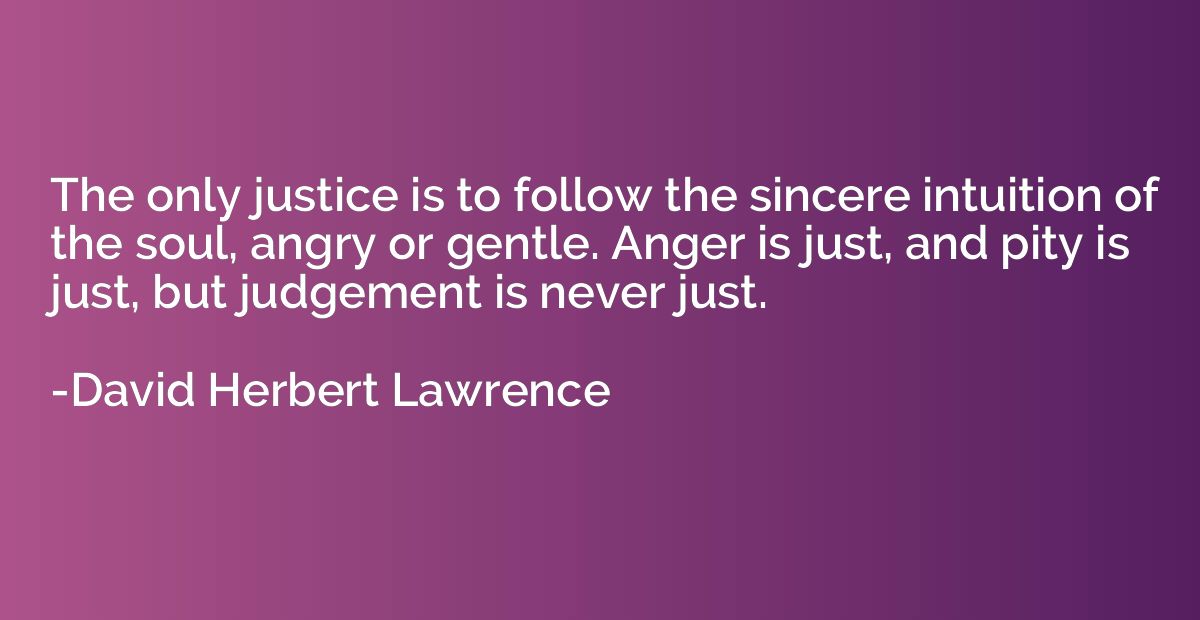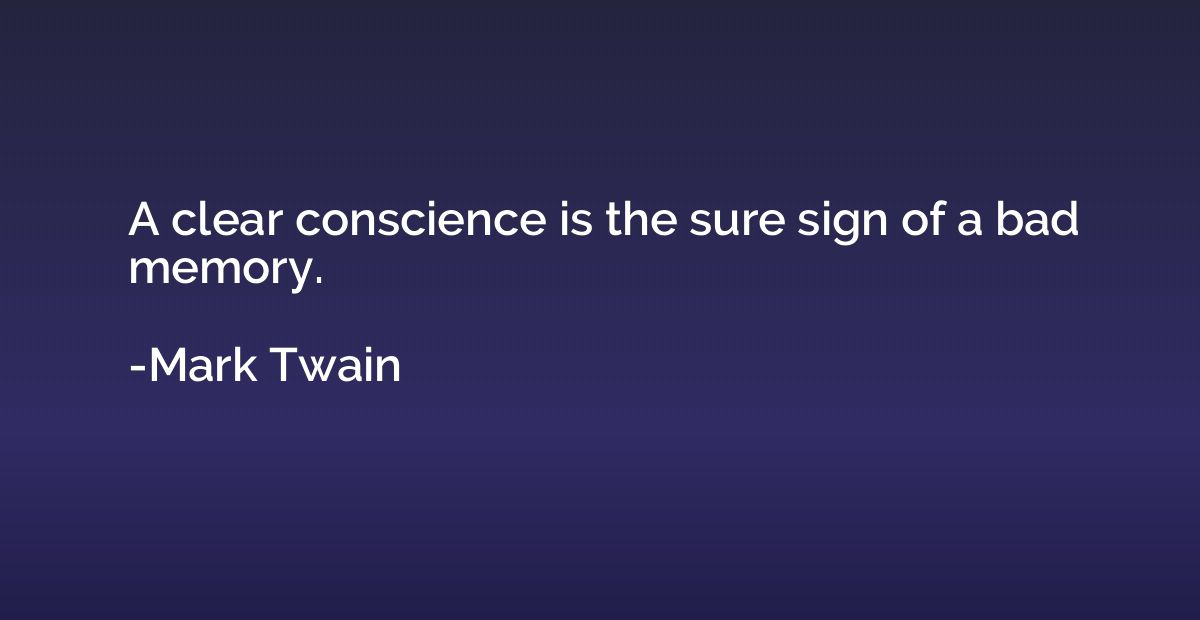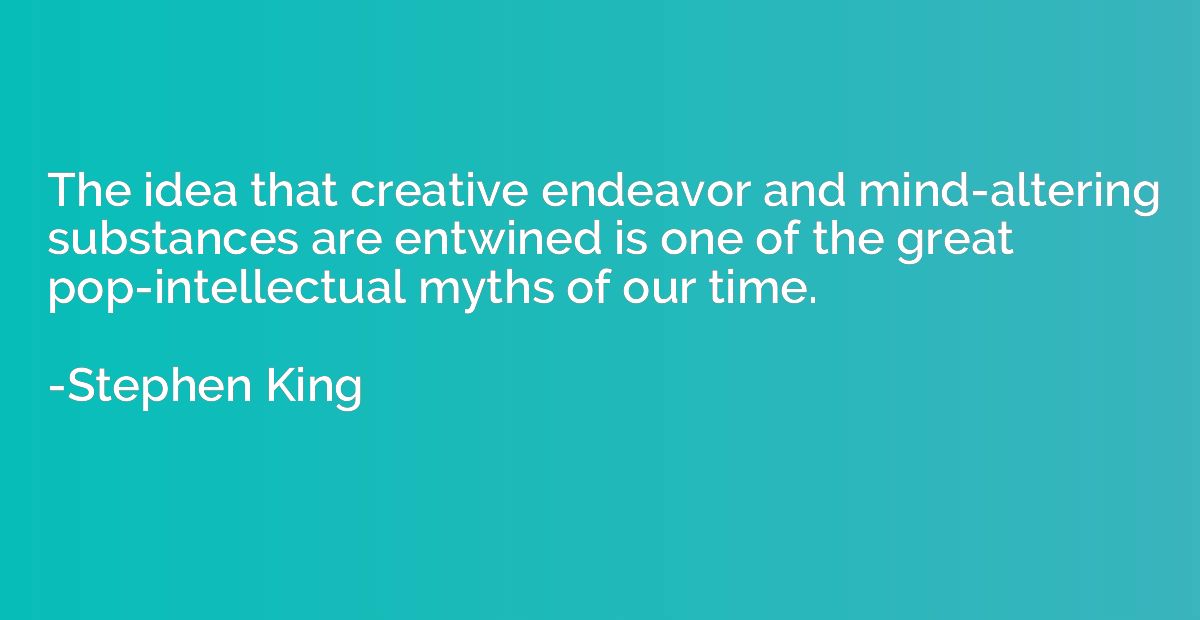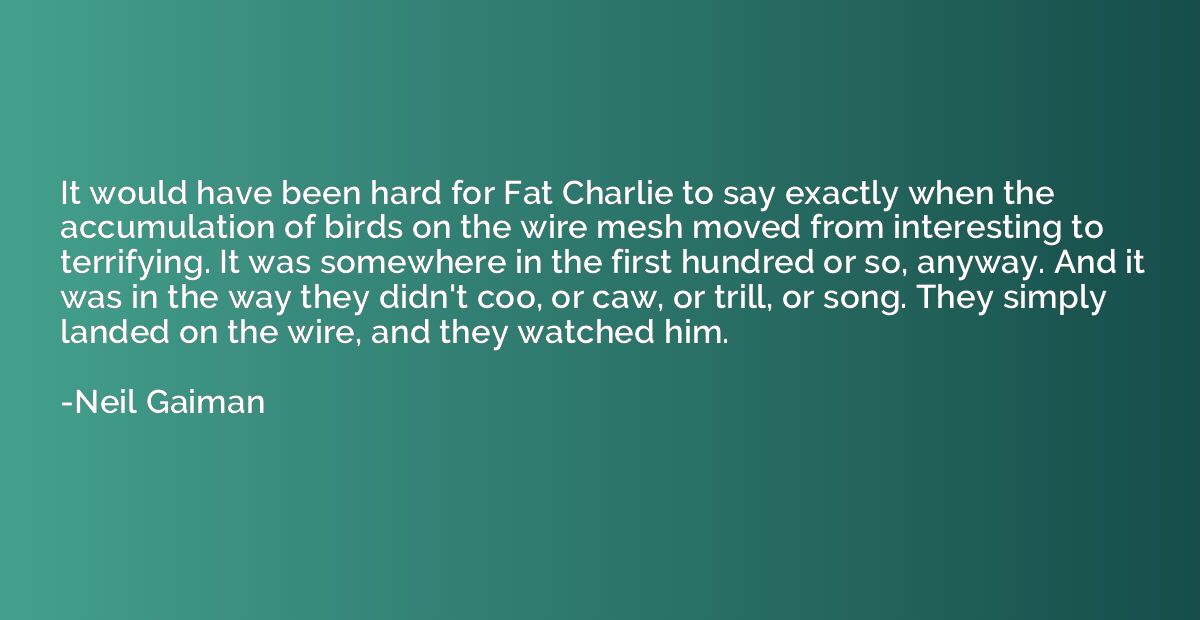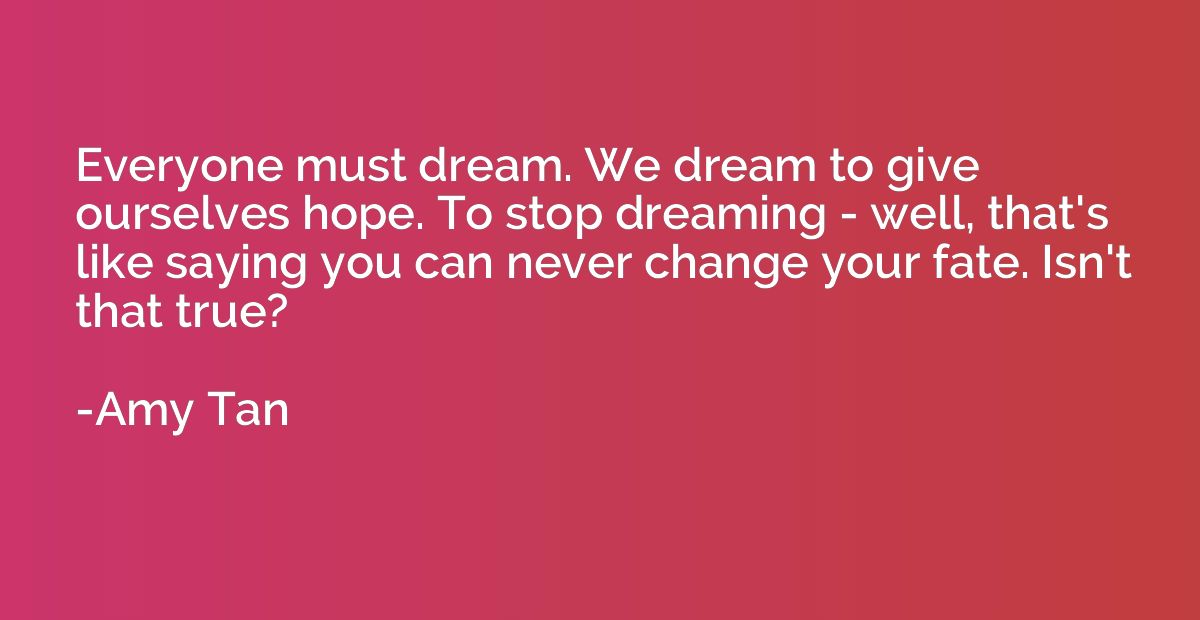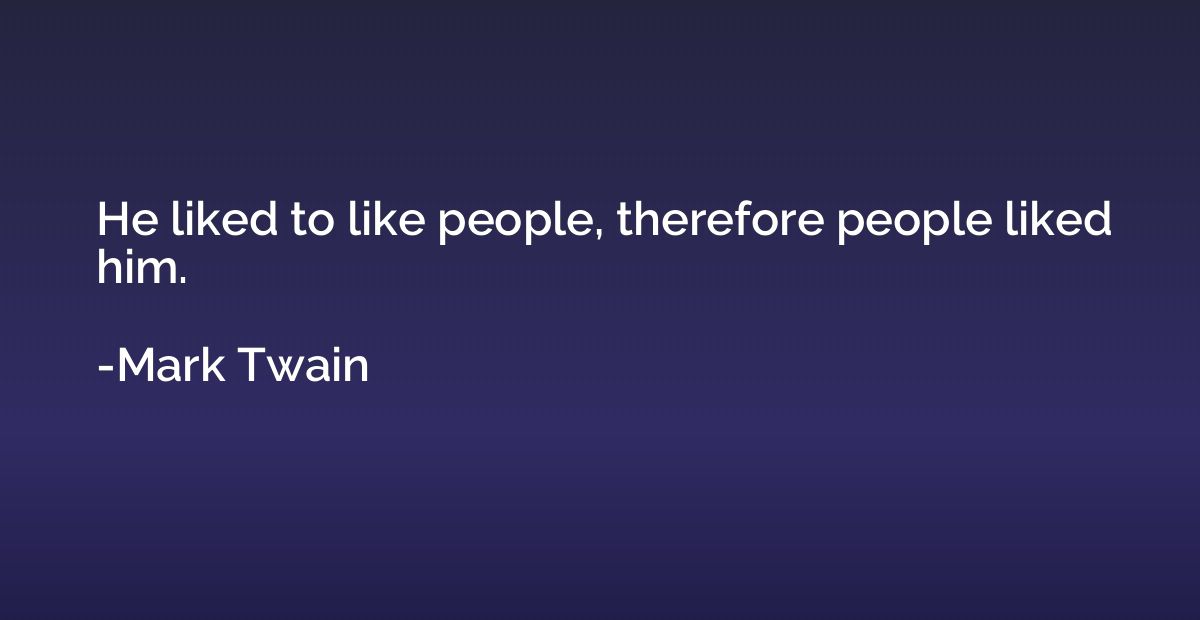Quote by Abraham Lincoln
If the policy of the government, upon vital questions affecting the whole people, is to be irrevocably fixed by decisions of the Supreme Court, the people will have ceased, to be their own rulers, having, to that extent, practically resigned their government into the hands of that eminent tribunal. Nor is there, in this view, any assault upon the court, or the judges. It is a duty, from which they may not shrink, to decide cases properly brought before them; and it is no fault of theirs, if others seek to turn their decisions to political purposes.
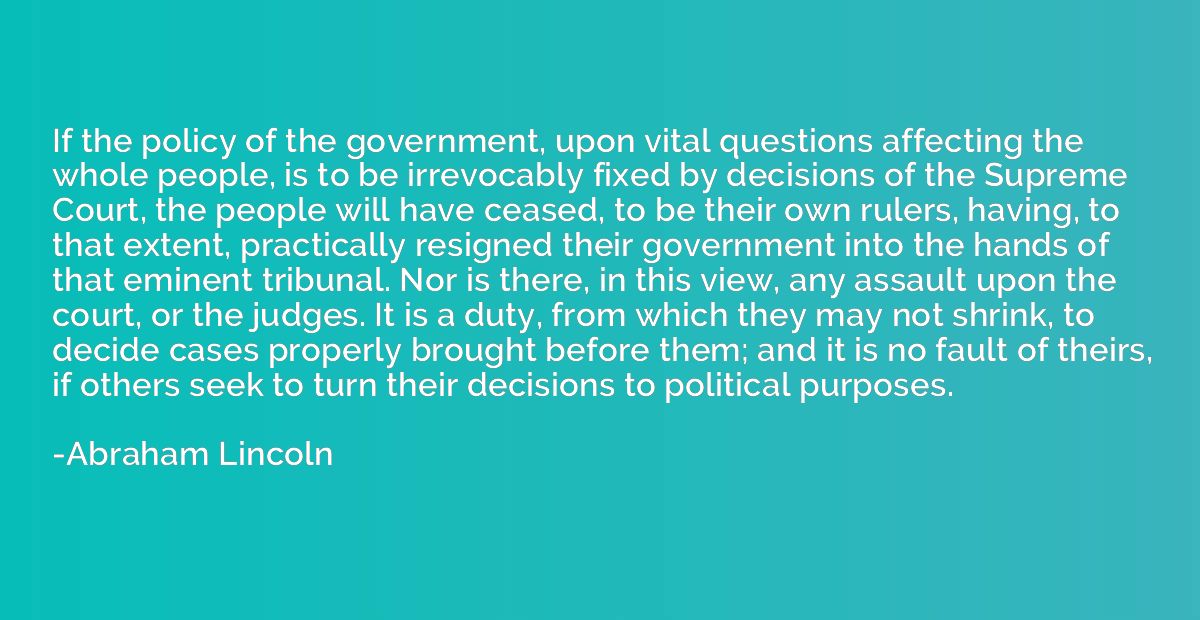
Summary
This quote suggests that if the decisions of the Supreme Court are seen as final and binding on the government, it can undermine the ability of the people to govern themselves. It argues that the people effectively hand over control of their government to the Court if its decisions on important issues become fixed and unchangeable. The quote emphasizes that this criticism is not directed at the Court or its judges, as it is their duty to adjudicate cases brought before them. However, if others manipulate Court decisions for political purposes, it is not the fault of the judges.




